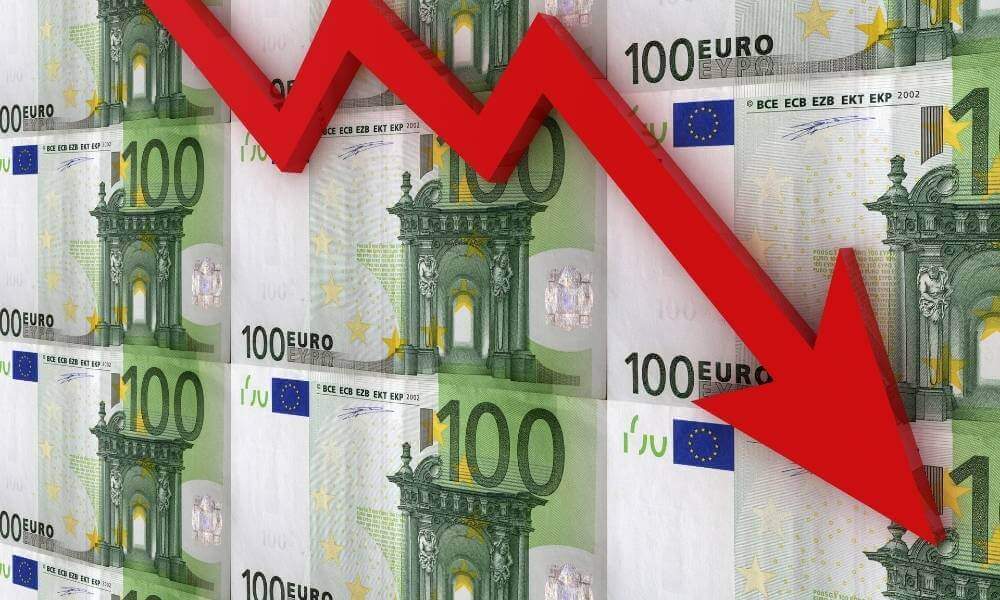
(Reuters) - The euro slid to its lowest level in almost six years against Britain's pound and was pinned near 21-month lows versus the dollar as a fresh surge in energy prices heightened worries about the euro area's economic outlook.
With Brent crude hitting a nine-year high above $119 per barrel, a dash for resources also gave commodity-linked currencies a lift, with Australia's dollar climbing to its highest since November.
But it was the euro that took the spotlight as it fell to 82.76 pence as London trade got underway. That was the lowest level against sterling since July 2016.
The single currency was down a third of a per cent at $1.1083, holding near Wednesday's low of $1.1058, its lowest since May 2020. It is down 1.5% for the week so far and is heading for a fourth consecutive weekly loss against the U.S. dollar.
"It's still going down," said Kit Juckes, chief global currency strategist at Societe Generale (OTC:SCGLY) in London, referring to the euro.
"Look at gas prices. This is the clinching point in terms of the economic impact of the war, and it is going to hurt."
Eurozone inflation hit a record high of 5.8% last month, data on Wednesday showed.
The problem for the European Central Bank, which meets next week, is that while the war in Ukraine is likely to boost inflation further, it is a negative for both growth and inflation in the longer term.
The Australian dollar rose to its highest since mid-November at $0.7323 and was last up 0.2%, as prices for Australian exports such as coal, gas and grains soar on signs that sanctions against Russia are severely disrupting global supplies.
"Soaring commodity prices means commodity-focused currencies not directly linked to the escalating geopolitical tensions like the Aussie and the Kiwi are doing well," said Aaron Hurd, senior portfolio manager, currency, at State Street (NYSE:STT) Global Advisors.
The New Zealand dollar held near Wednesday's one-week top of $0.6798.
And the dollar appeared well-supported after Federal Reserve Chair Jerome Powell said on Wednesday the central bank would begin "carefully" raising interest rates this month, but was ready to move more aggressively if needed.
The dollar index was up 0.1% and the dollar itself was almost a quarter of a per cent firmer at 115.79 yen, while sterling slipped 0.13% to $1.3387.
Canada's dollar meanwhile rose to a five-week high of C$1.25870 per dollar, a day after the Bank of Canada's first interest rate hike since 2018.
Elsewhere, the Russian rouble slid to a fresh record low at around 118.35 in Moscow trade after rating agencies Fitch and Moody's (NYSE:MCO) downgraded Russia to "junk" status, citing the impact of Western sanctions.
Hungary's forint was weaker but holding below Wednesday's record lows against the euro as the country's central bank raised its one-week deposit rate NBHK by 75 basis points to 5.35% at a weekly tender on Thursday.
That was the biggest rate hike since 2008 as the war in Ukraine roiled Hungarian markets.
Bitcoin edged lower to around $43,447 as an early-week bounce lost steam.